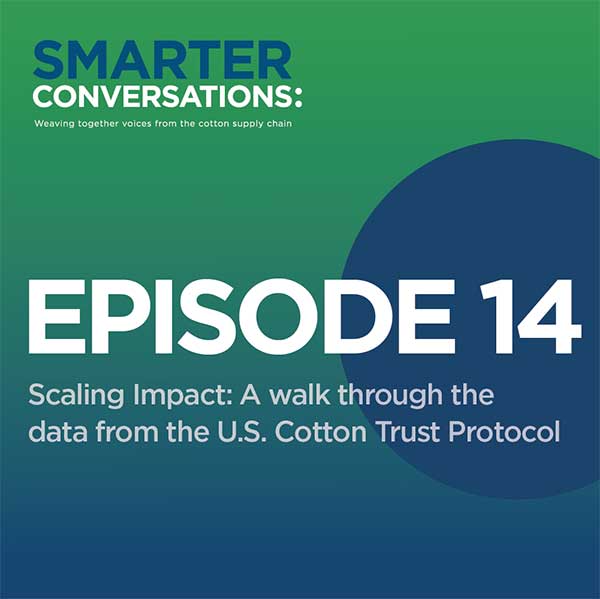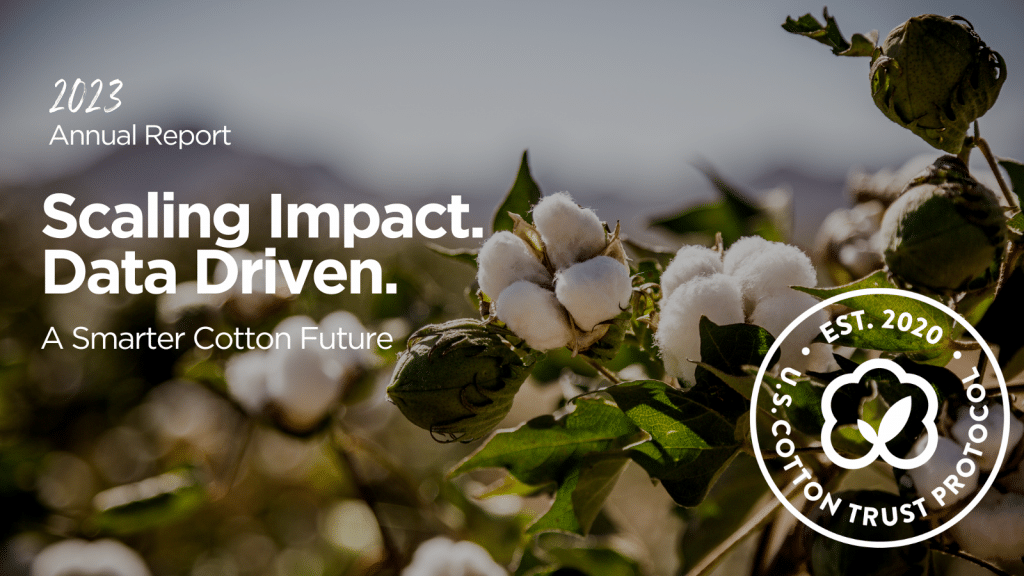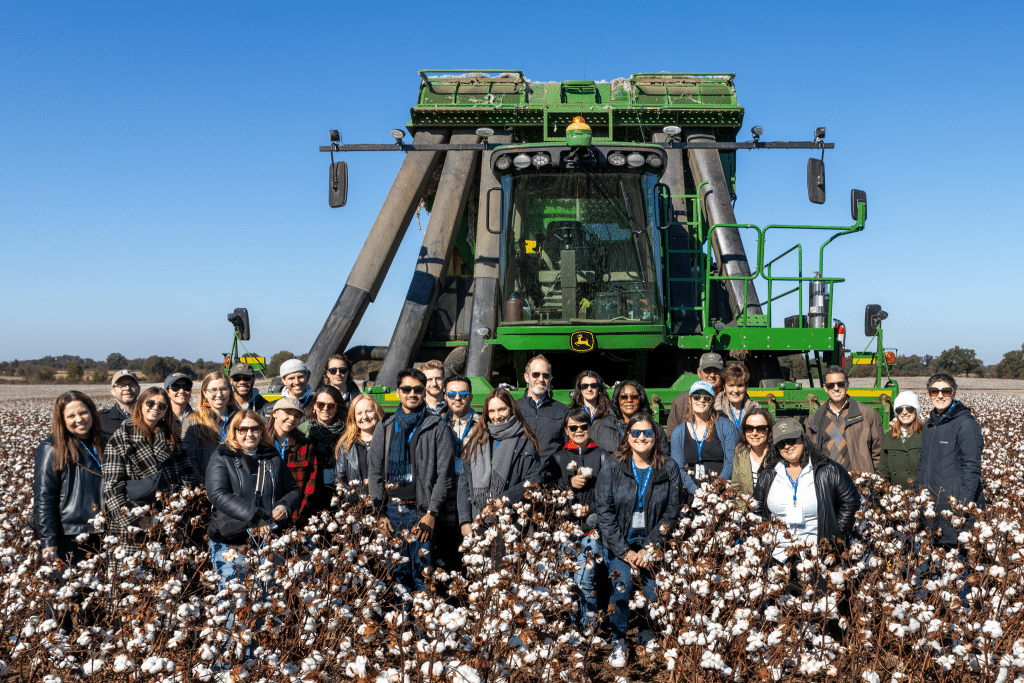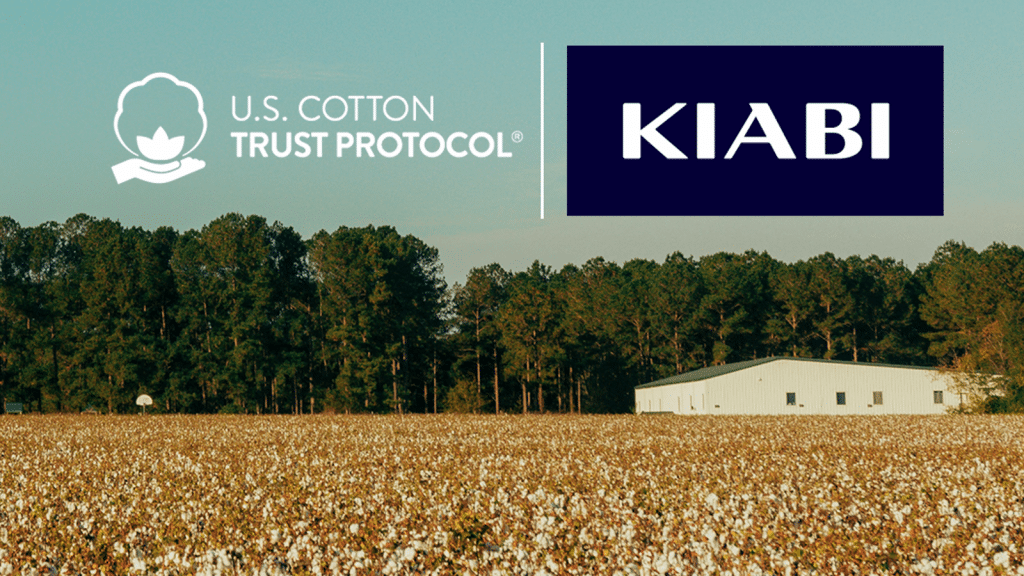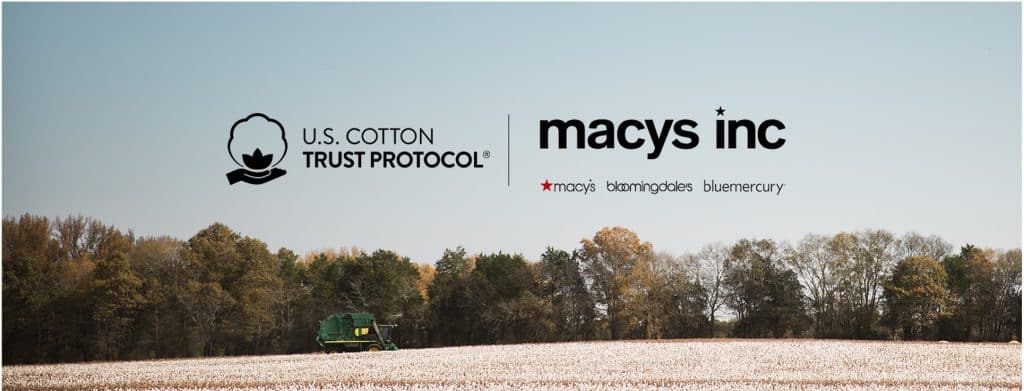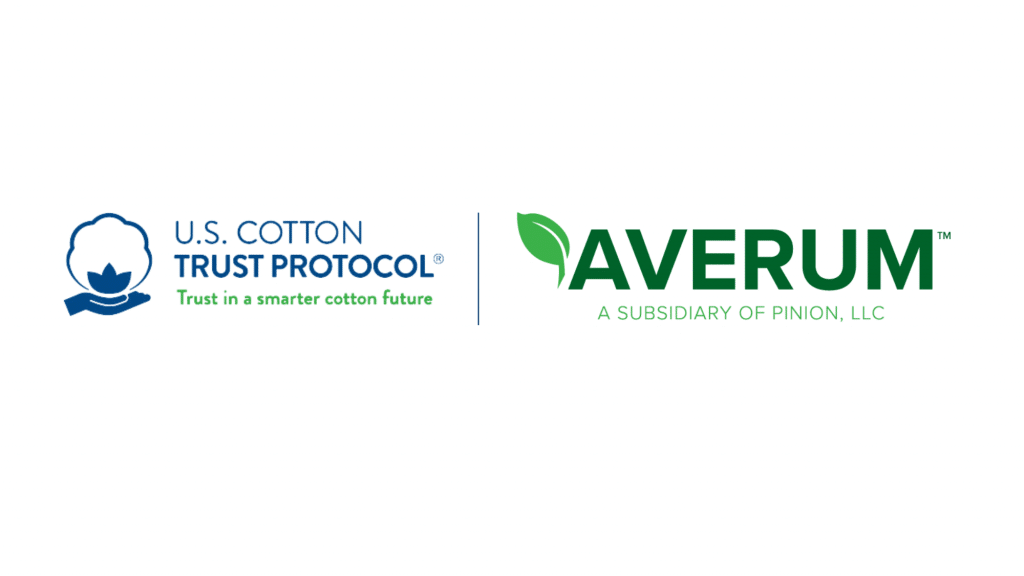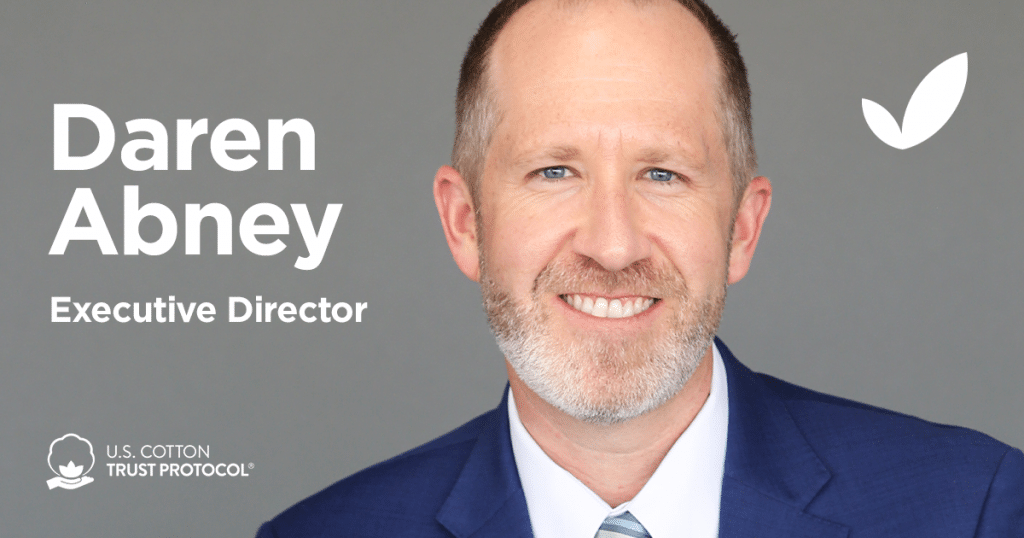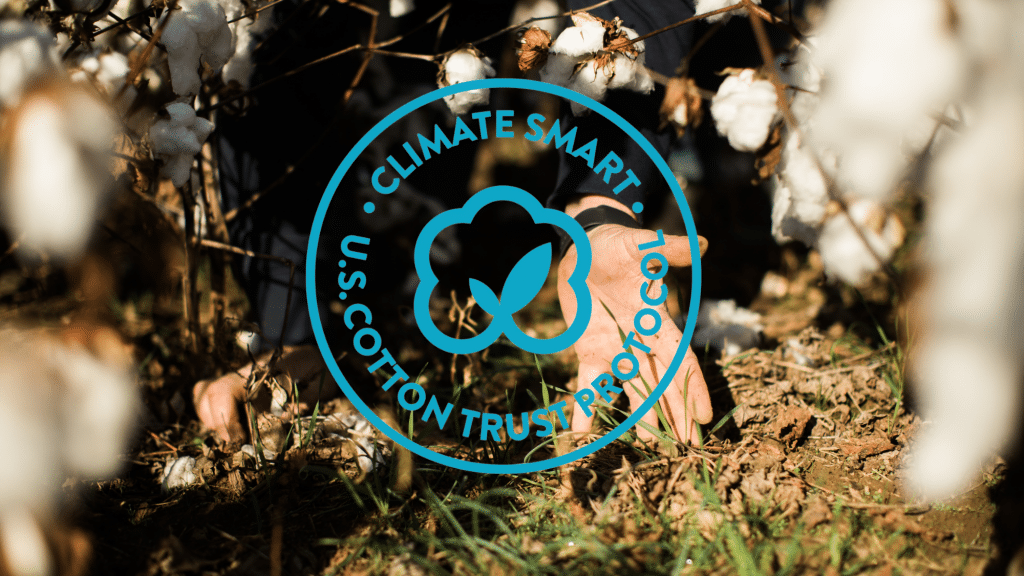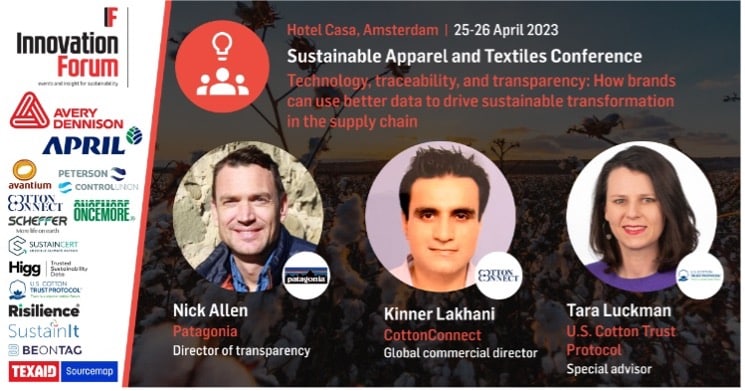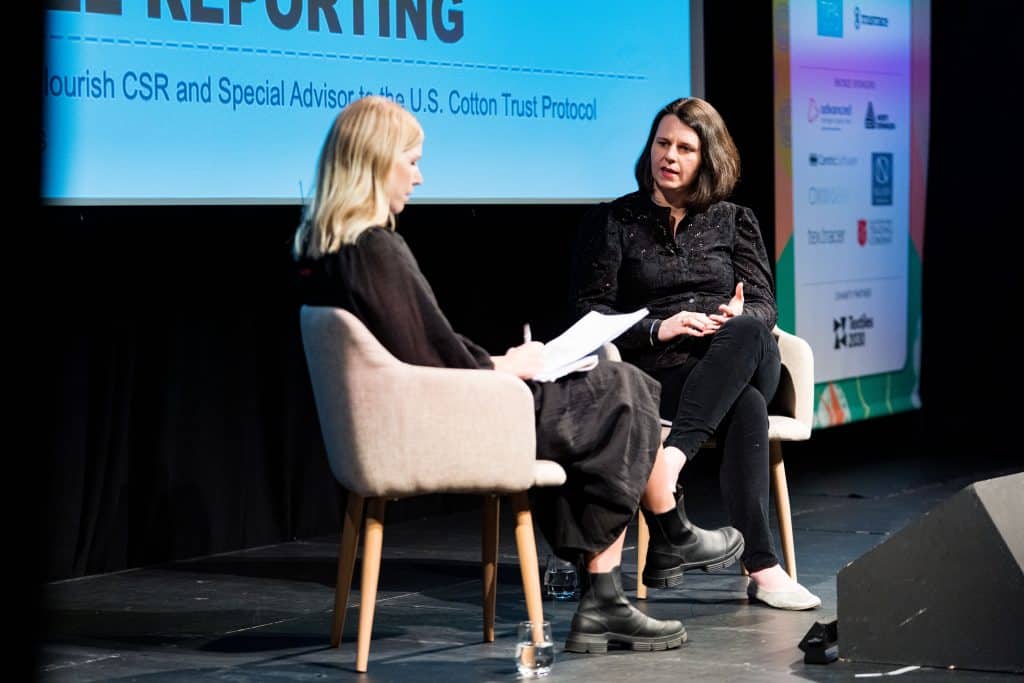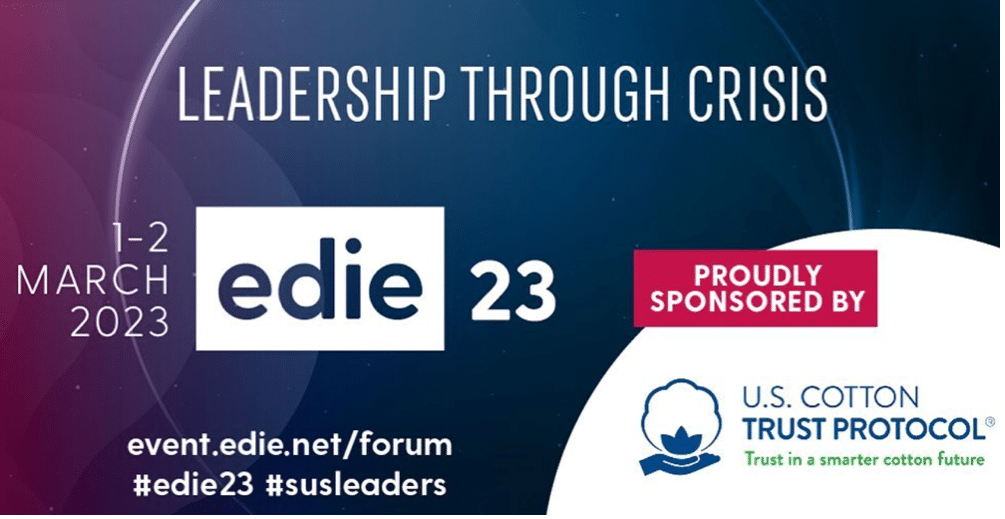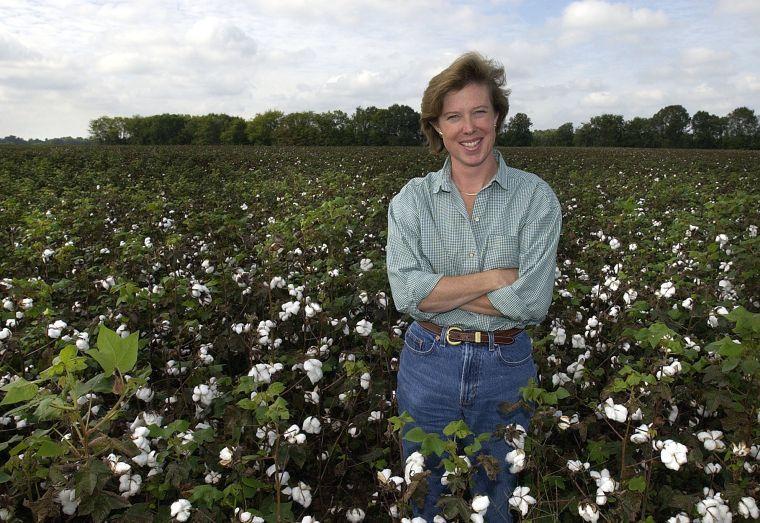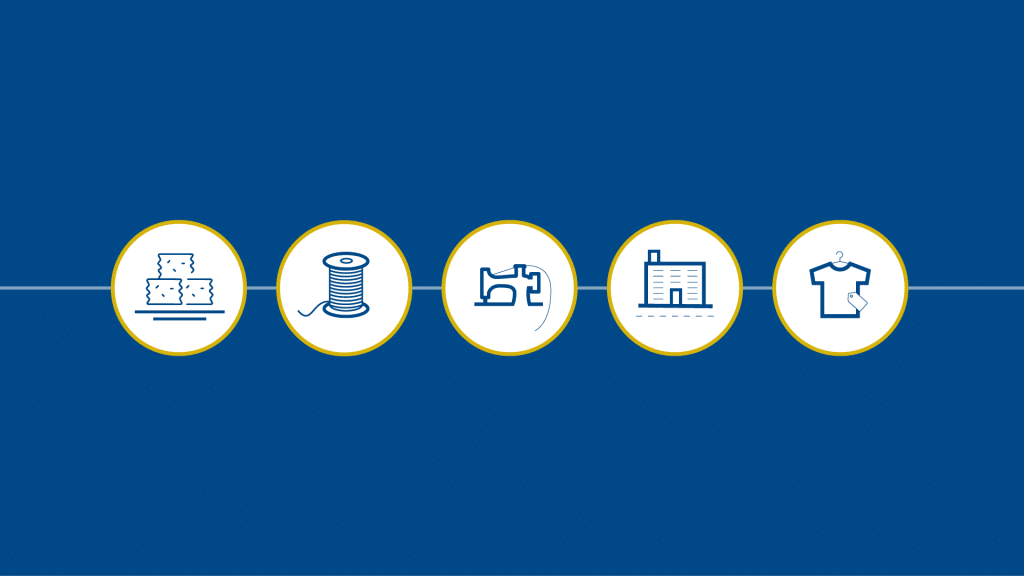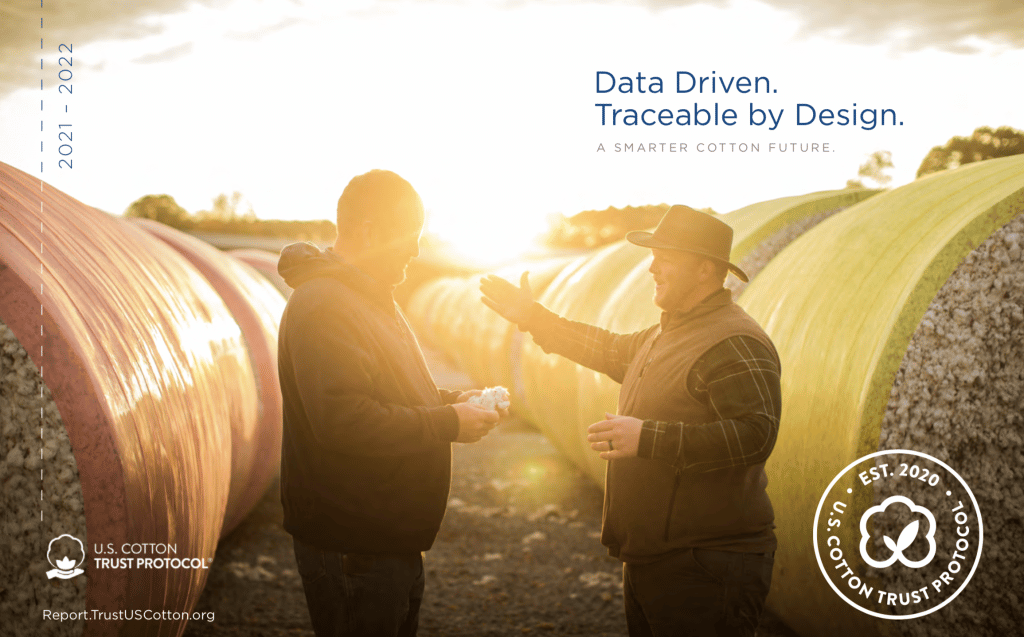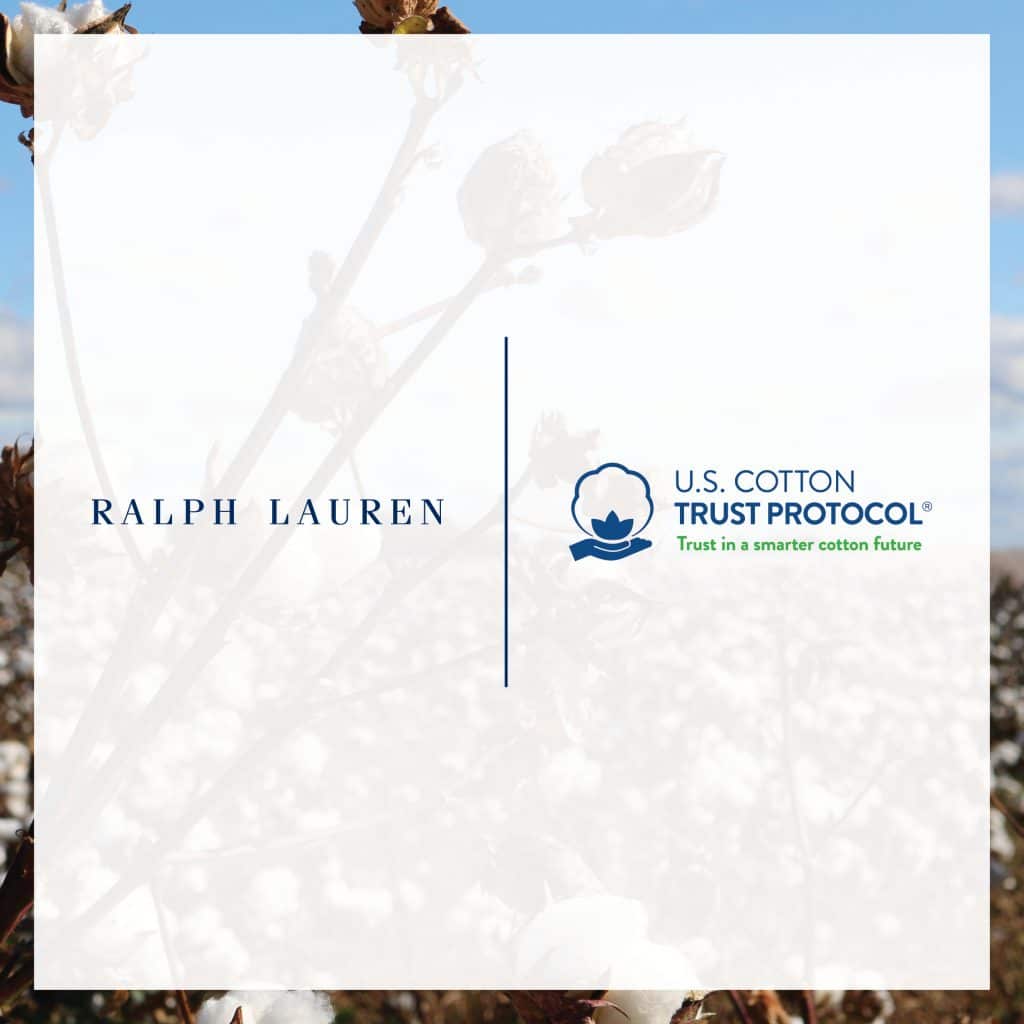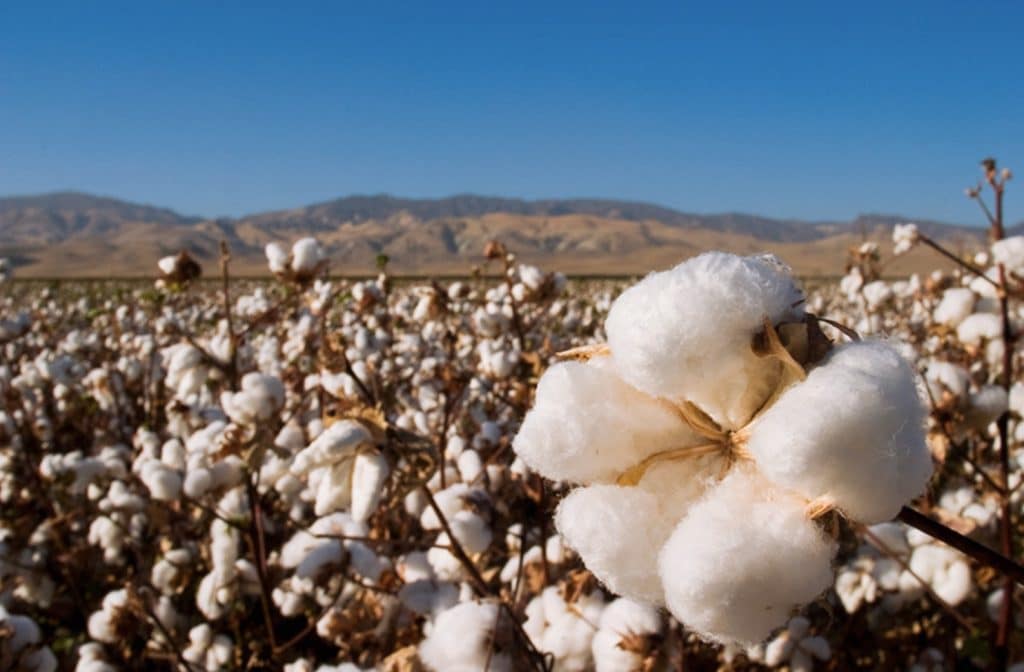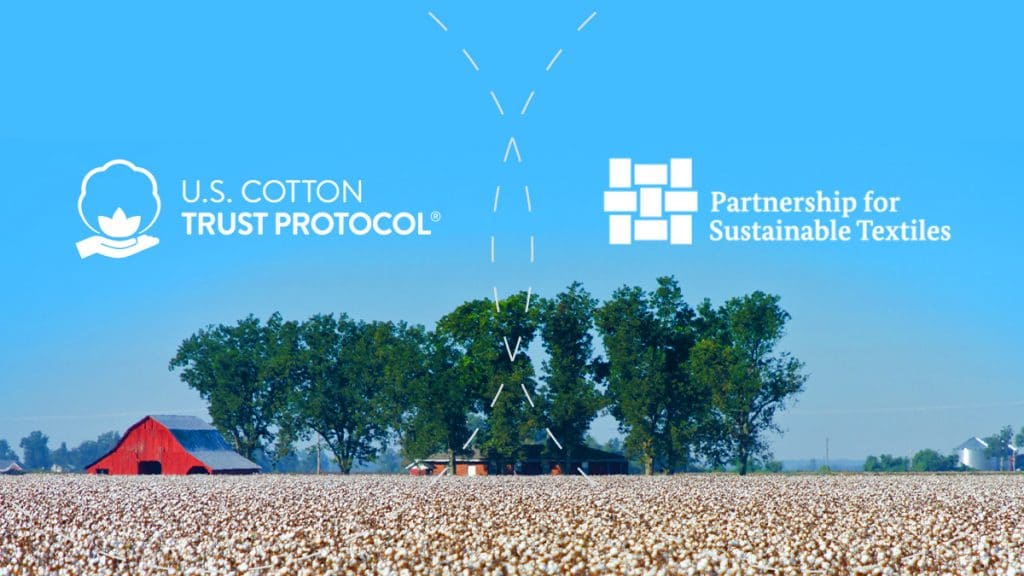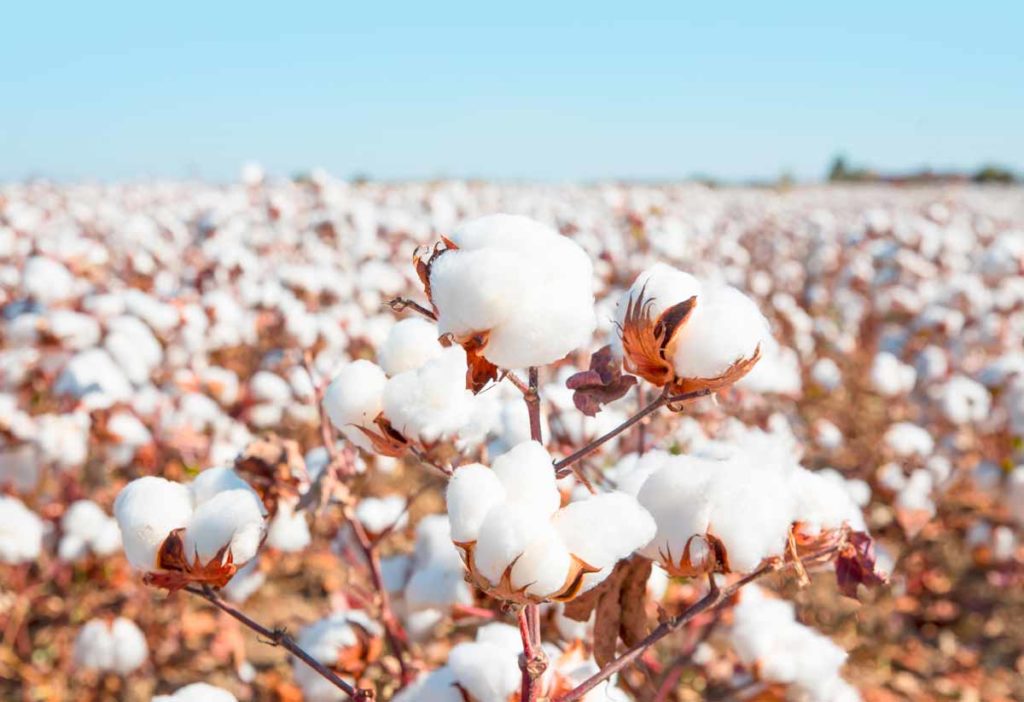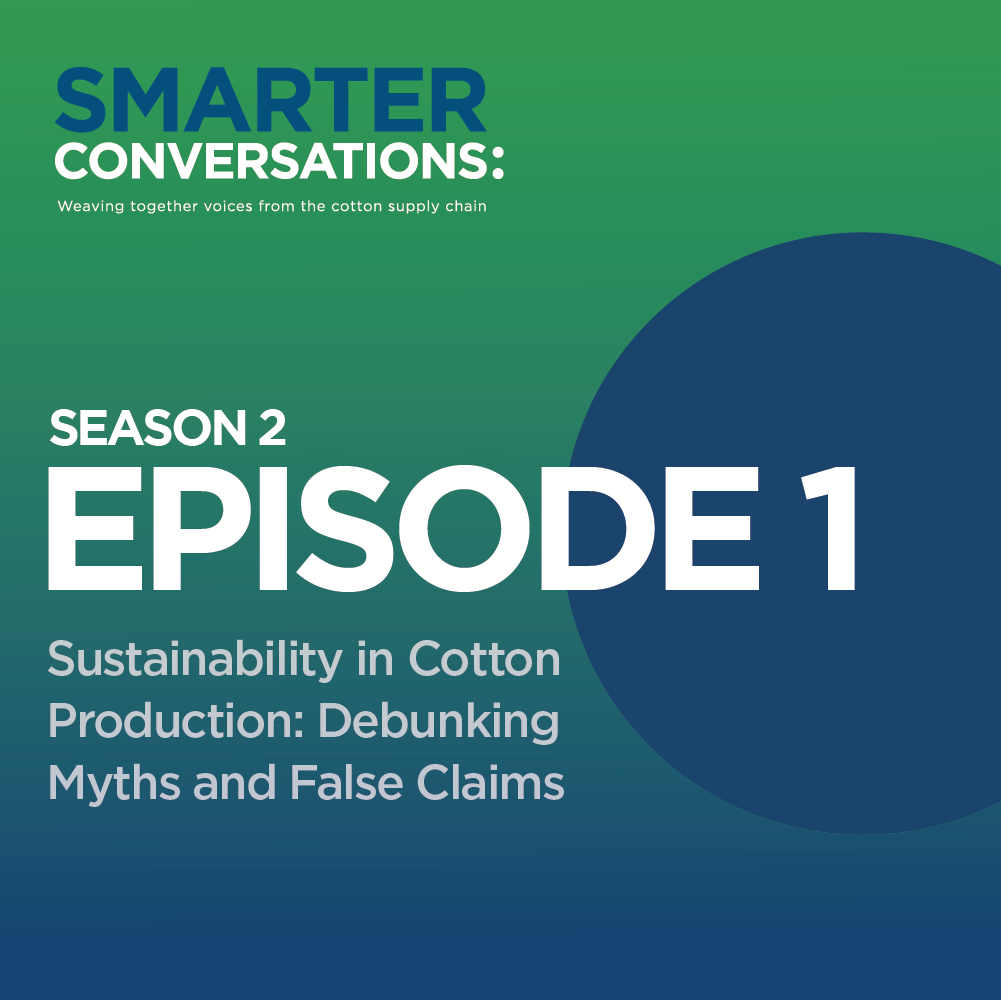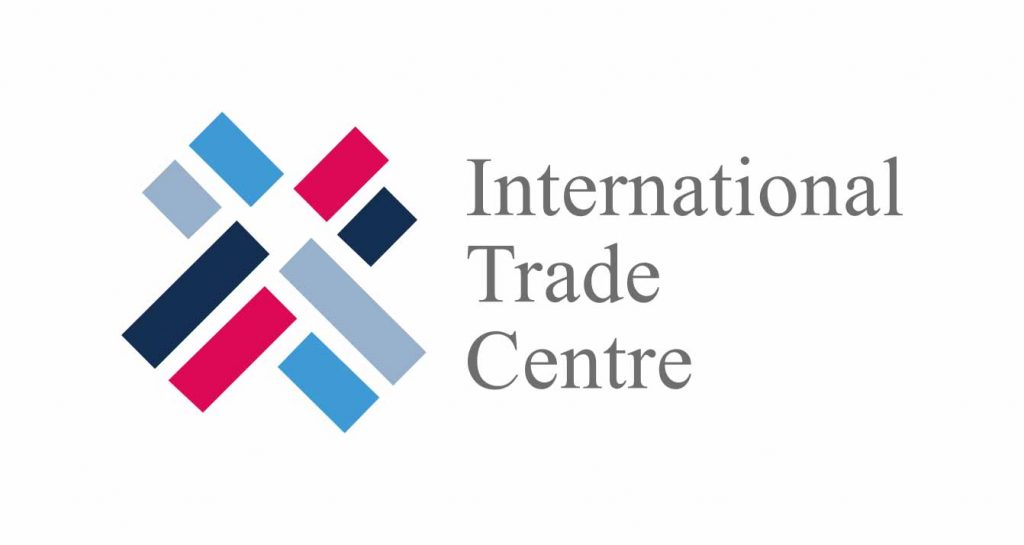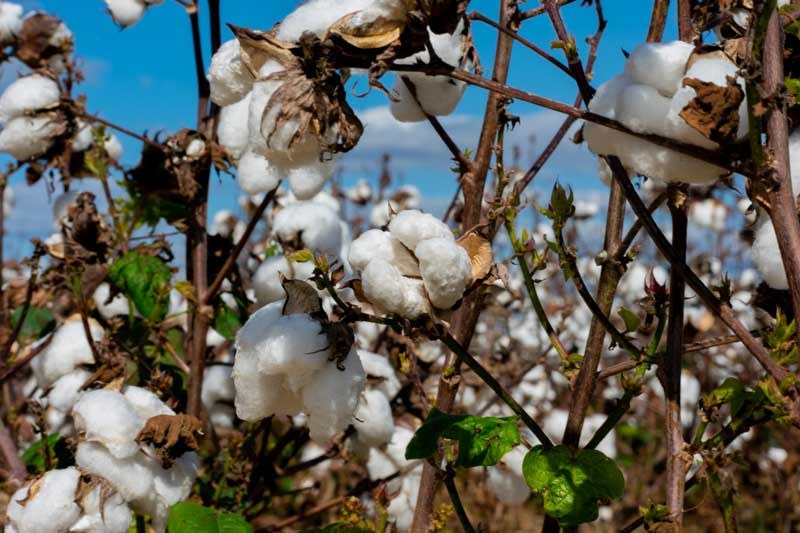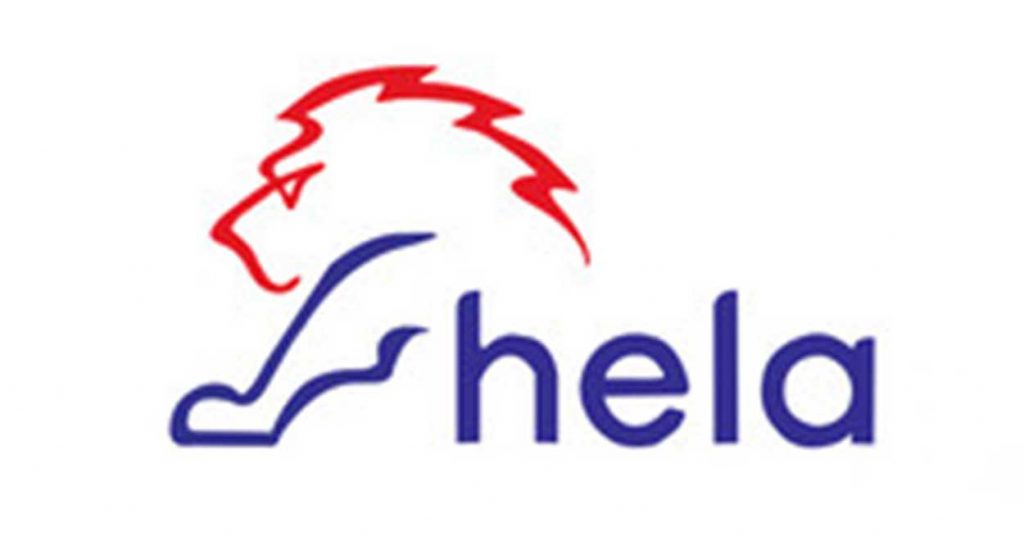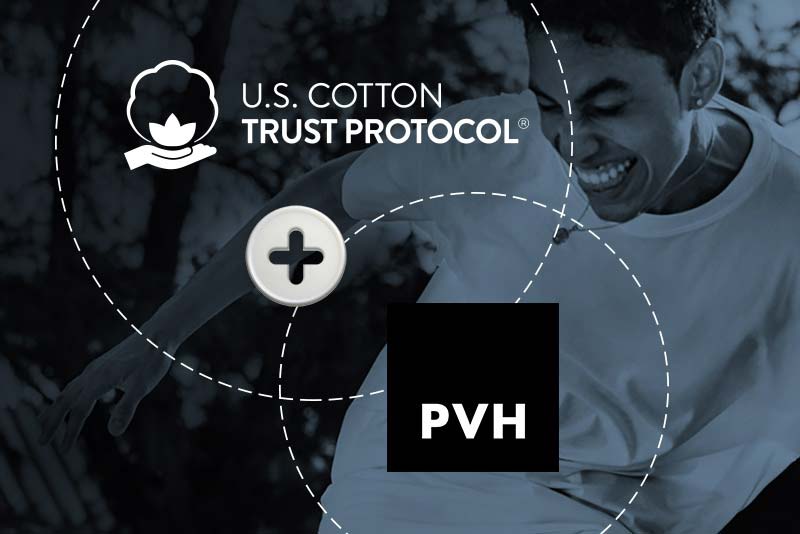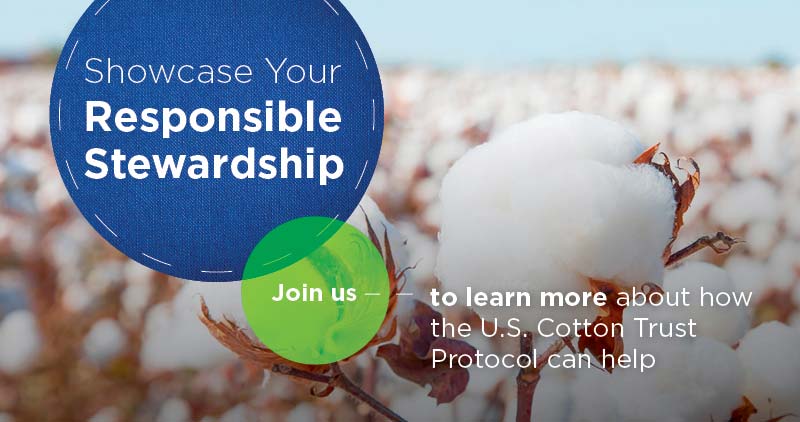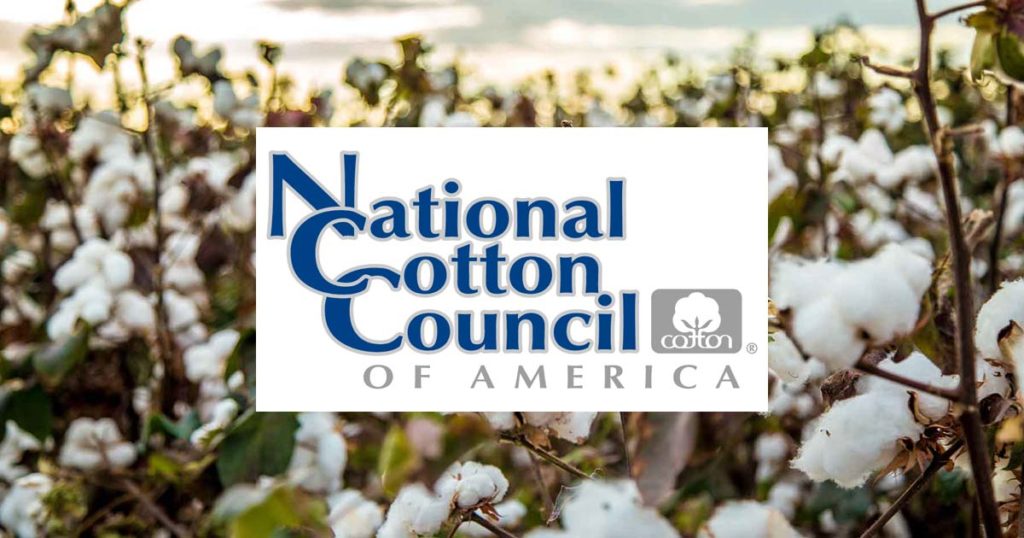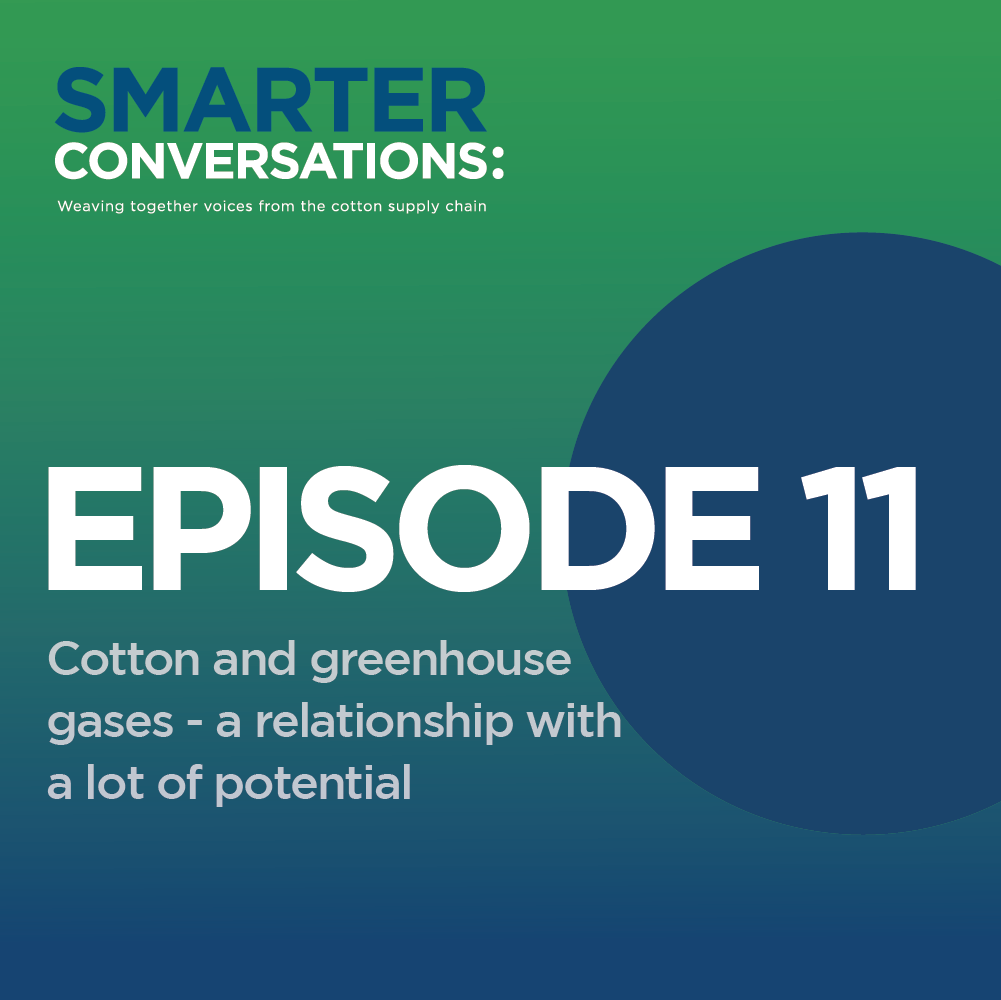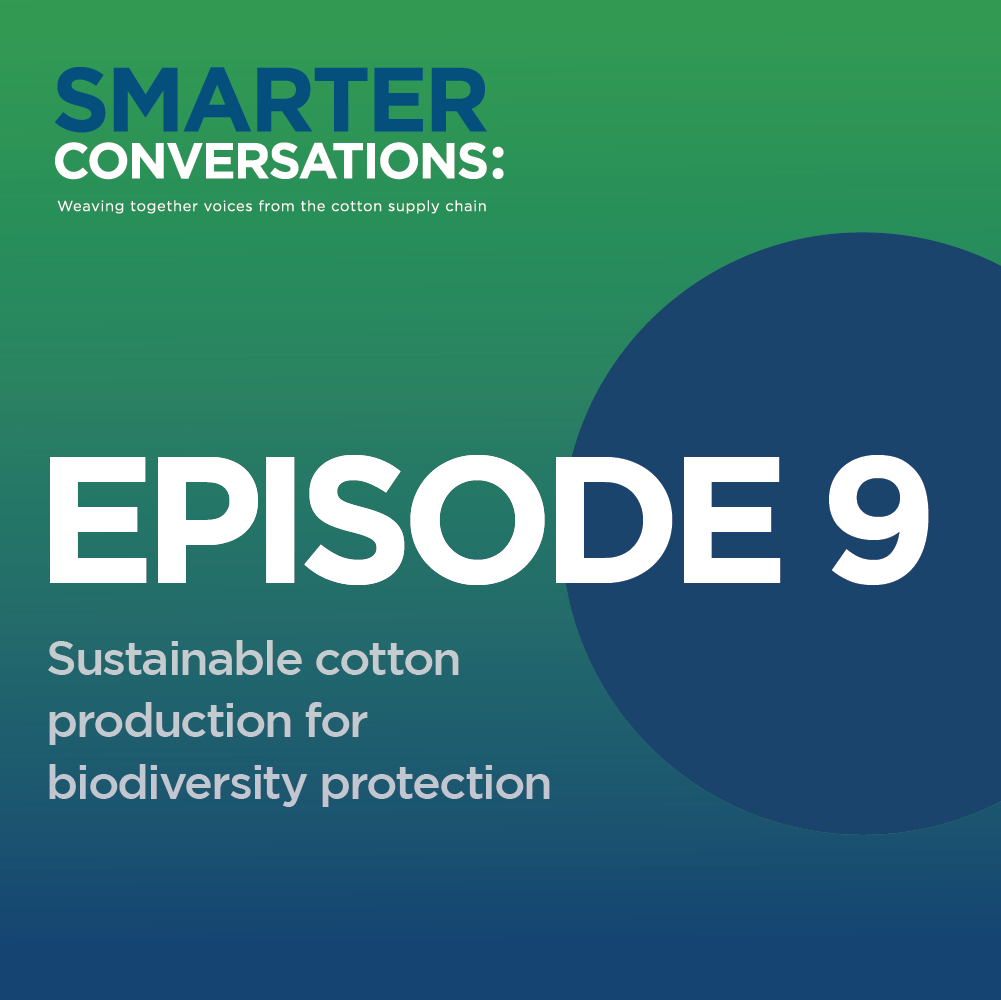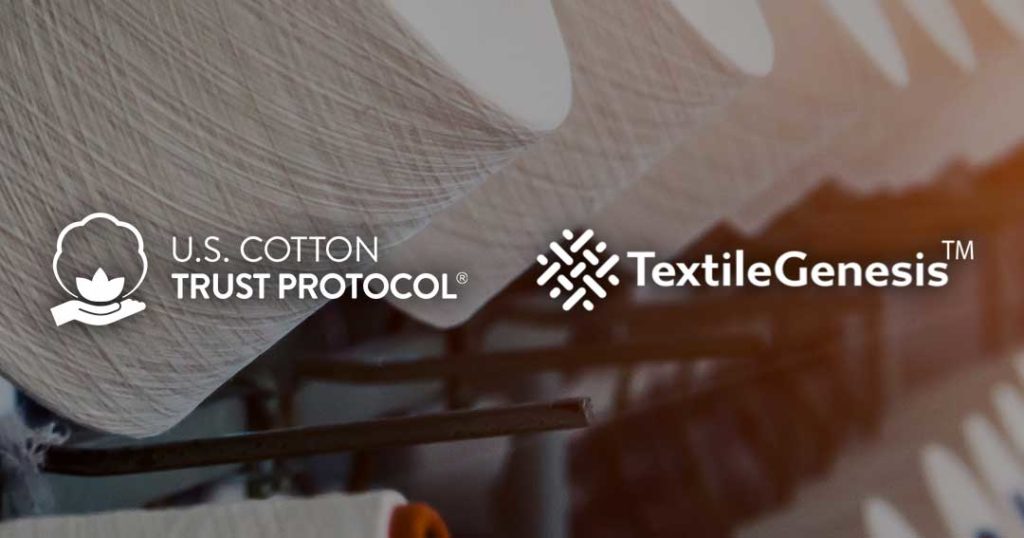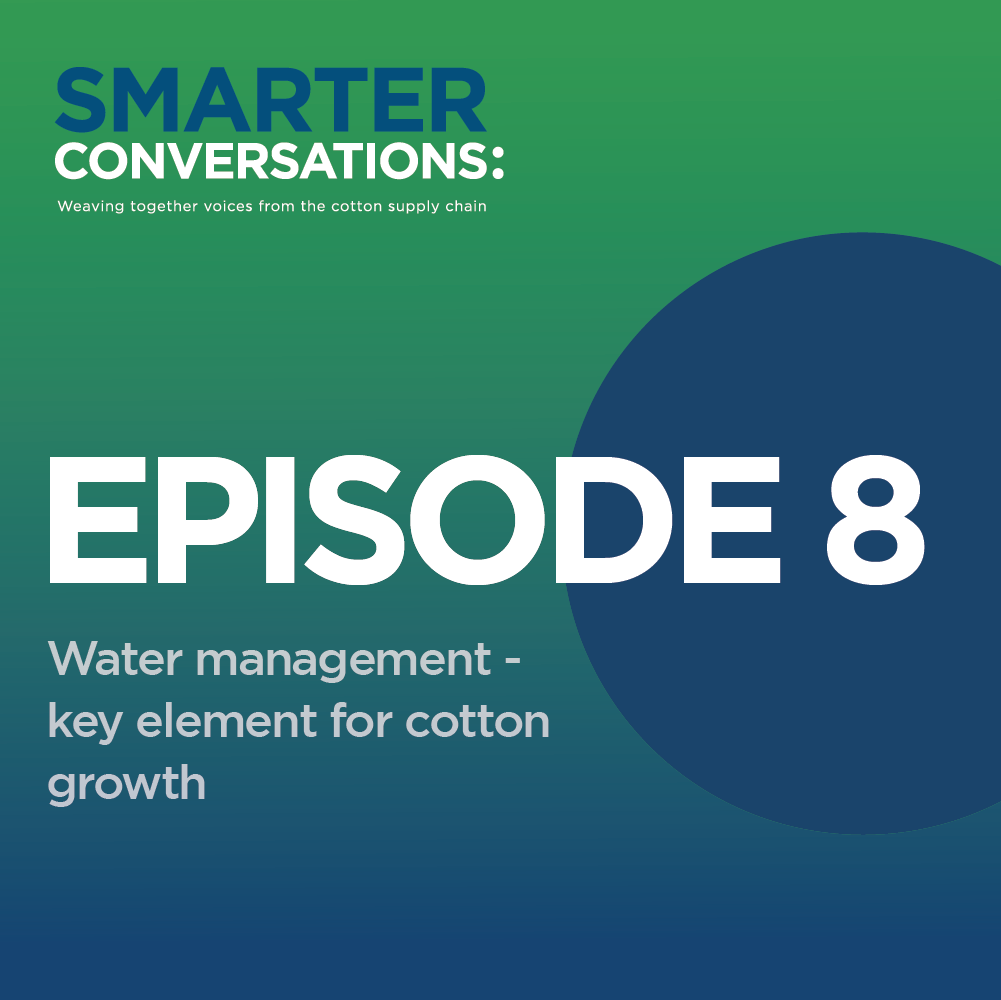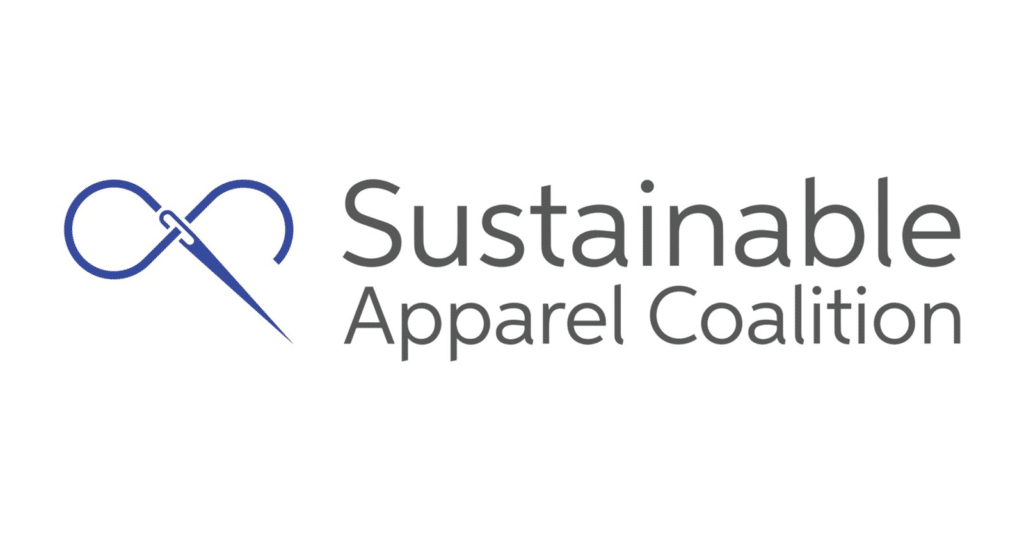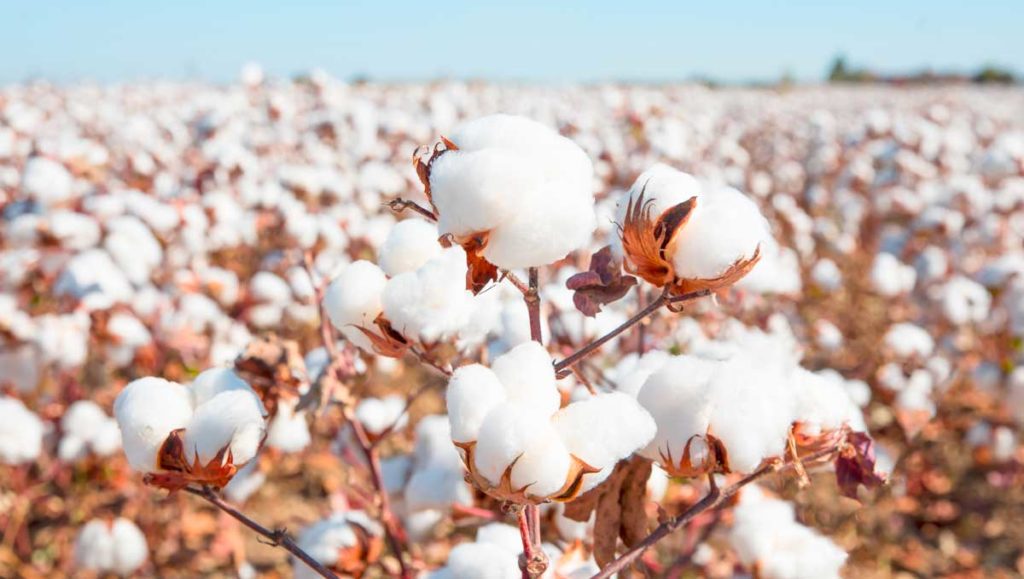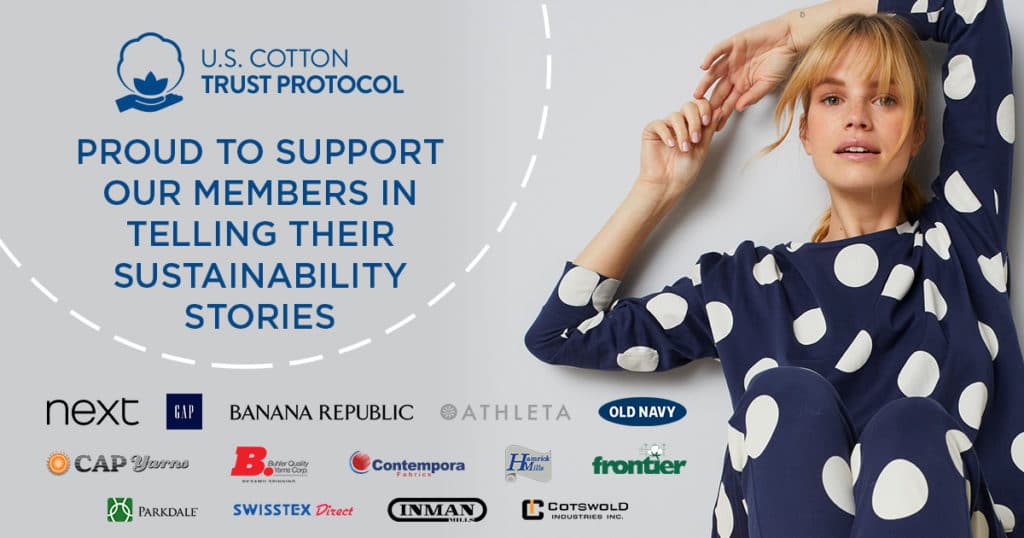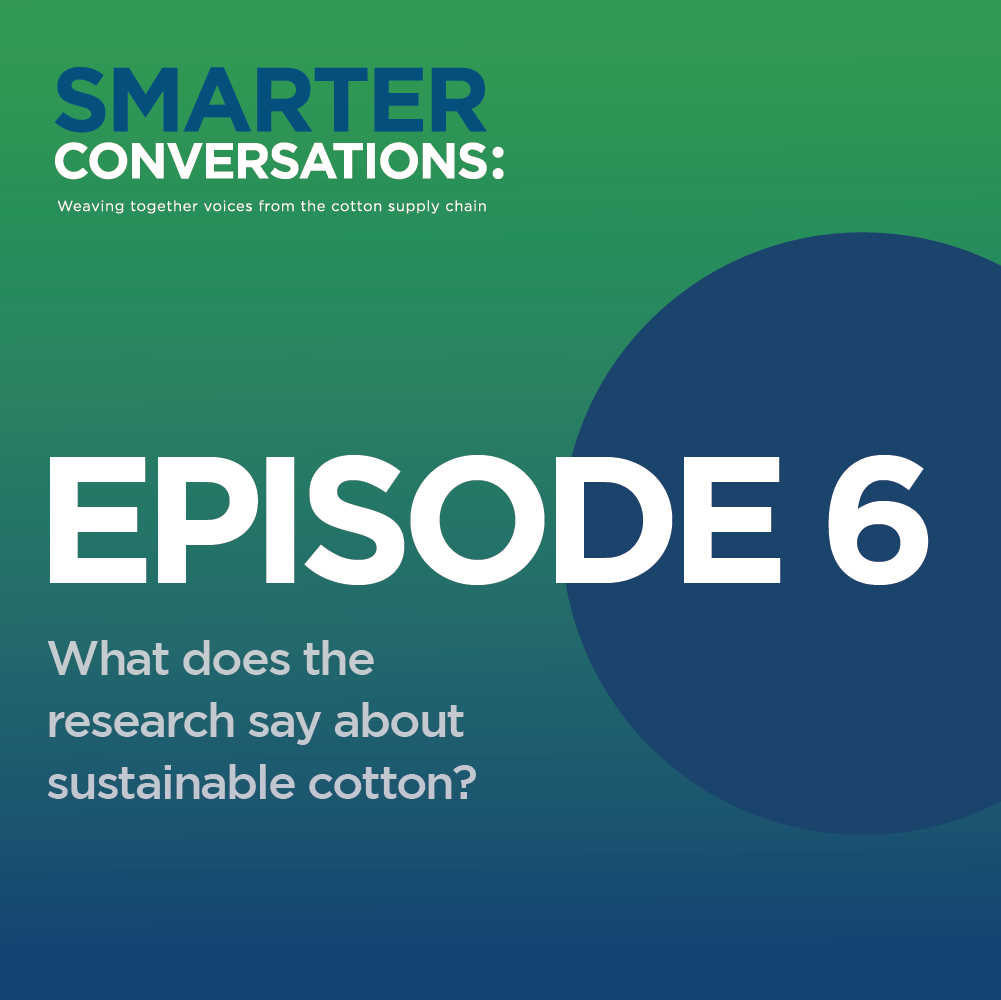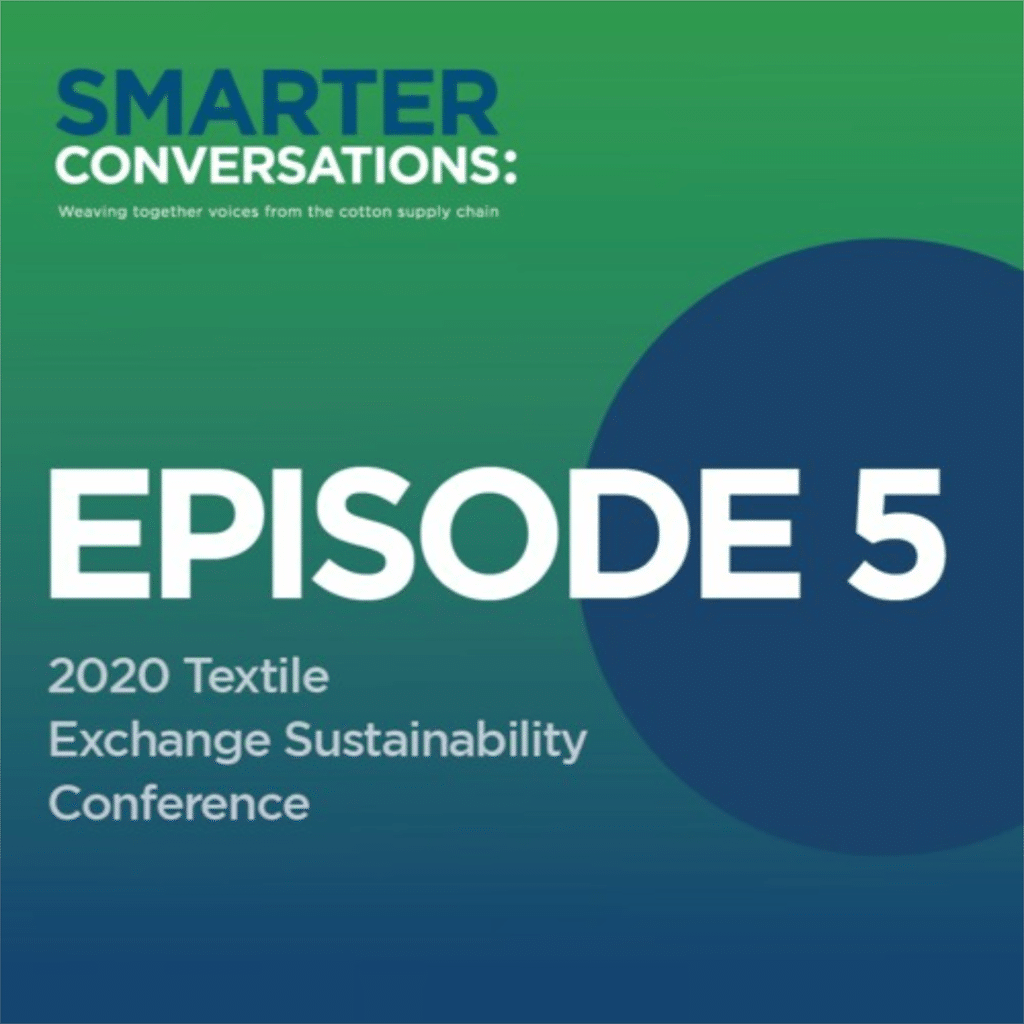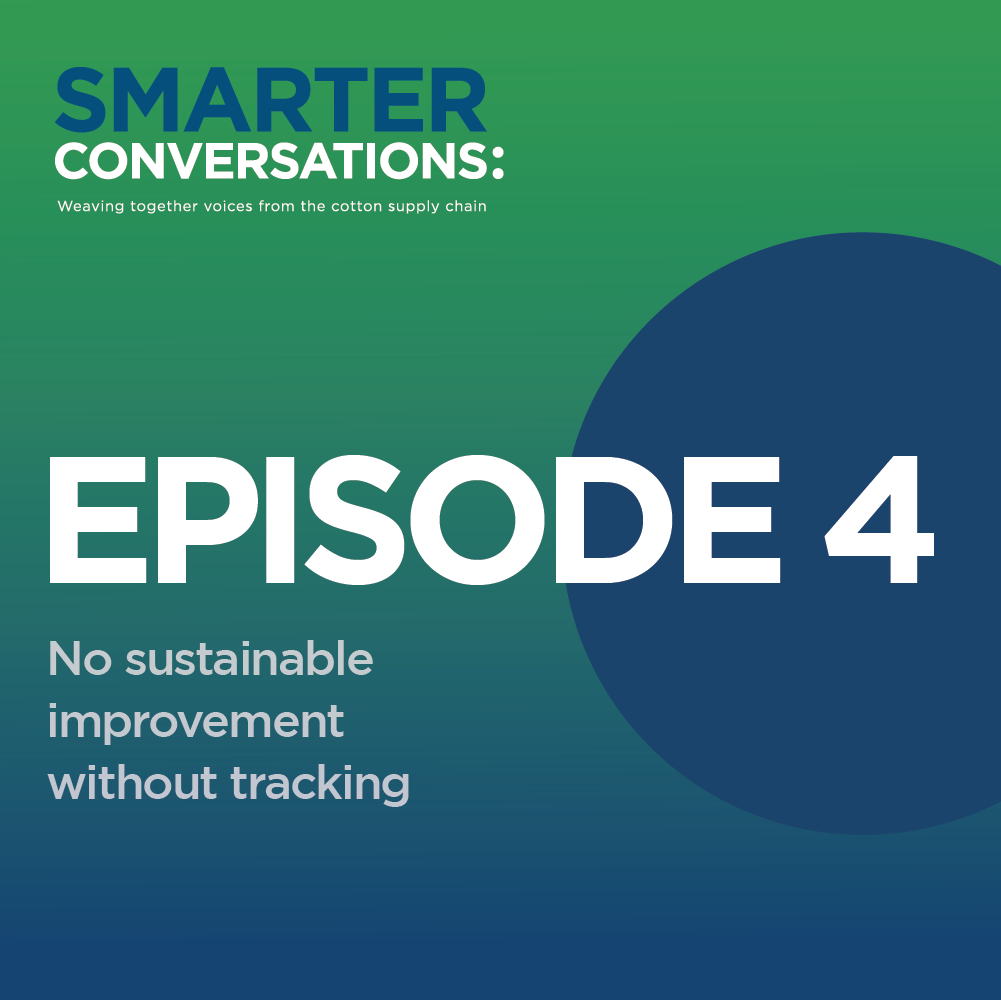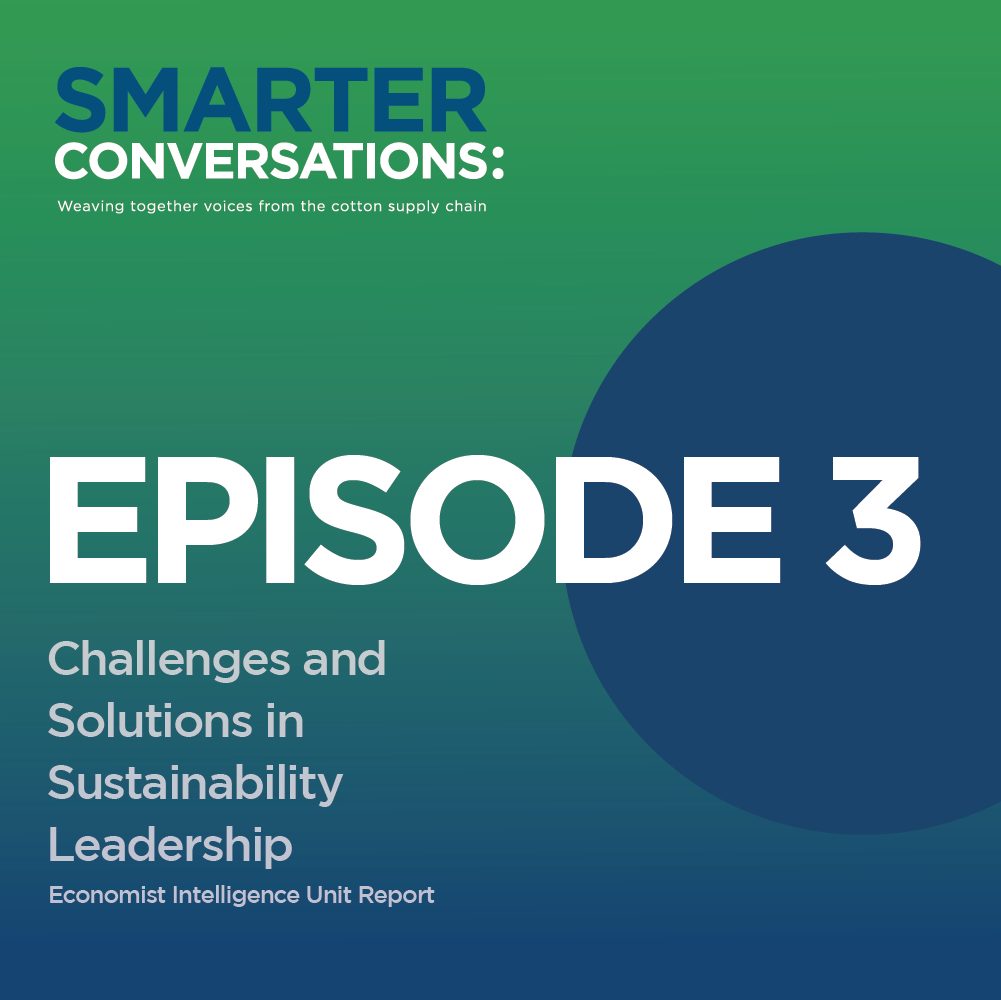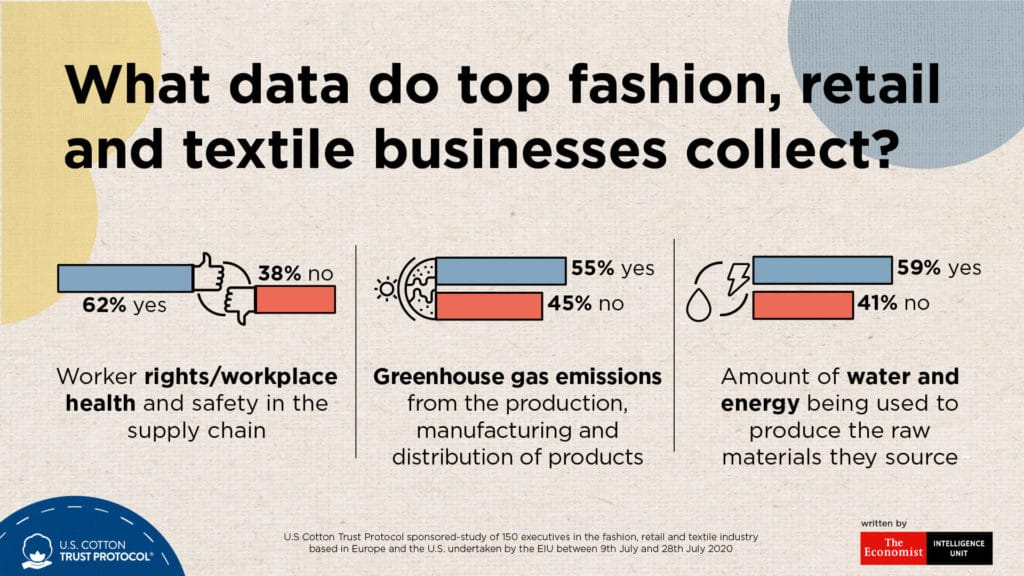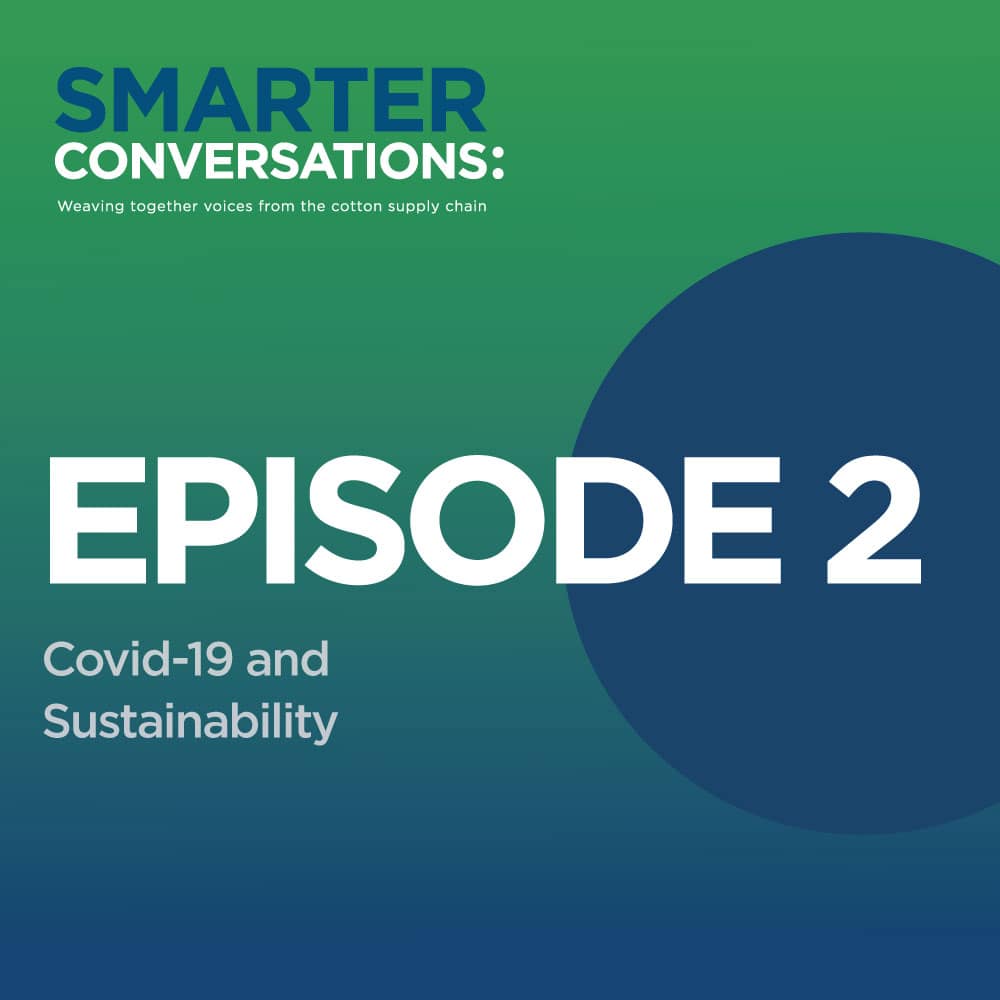The recent Textile Exchange Conference held in London was a gathering of industry leaders, brands, and retailers with a strong commitment to sustainability and responsible sourcing. With over 1,500 attendees, the event proved that the need for idea exchange and drive for a more sustainable textile industry is stronger than ever.

The Trust Protocol sponsored the event and had a booth highlighting the program’s commitment to robust data capture, aggregation and reporting that drives continuous improvement as well as the importance of a transparent supply chain, right from the farms to the finished product.
Throughout the event, it was clear that transparency is crucial for building trust and ensuring that consumers can make informed choices about the products they buy.
The Power of Collaboration and Multi-Stakeholder Solutions
As the conference kicked off, it was all about unity and aligning resources and programs to drive systemic change. The event welcomed a variety of participants, including global brands, spinning mills, thought leaders, and influential industry organizations such as Lululemon, Carhartt, and Walmart, among others.
One key takeaway was the need for multi-stakeholder solutions in addressing sustainability challenges. Sustainability goals should not be isolated; instead, they should be woven into the fabric of the entire industry.
As the industry looks to continually evolve, regenerative has become a key phrase. The task of becoming a regenerative business cannot fall solely on the shoulders of sustainability teams. To bring about change, actions must be taken at all levels of the supply chain, and incentives should be created to resonate with different stakeholders.
In fact, the program is proud to lead the U.S. Climate Smart Cotton Program, a 5-year initiative aimed at measuring and improving the carbon footprint of the U.S. cotton industry. The initiative will build on the four pillars of Climate Smart Agriculture practices that support planting cover crops, reduced tillage, and nutrient management. This will allow for improved soil health, increased drought and flood resilience, advanced nutrient use efficiency, decreased soil erosion, and reduced greenhouse gas emissions. One of the goals of the program includes producing 4.2 million bales of Climate Smart Cotton.
The Importance of Ground-Level Action

As the conference progressed through the week, the event highlighted a fundamental truth: while global brands and industry players hold immense power and financial potential for driving change, the real, tangible impact occurs in the soil and on the ground. Farmers, forest managers, waste collectors, and other raw material producers play a pivotal role in the industry’s sustainability journey. In fact, during the event the Trust Protocol announced an increase of 25% compared to 2022 in the total area of planted cotton acres enrolled in the program, reaching 1.6 million acres in 2023 – it’s greatest extent to date.
The challenge is to make sustainable materials more readily available. Companies must invest in building production systems that respect both people and the planet. To achieve the desired outcomes for climate and nature, collaboration with those on the ground is essential. This will involve making sustainability conversations more inclusive and bridging the gap between brands and producers.
Systems Change and the Future of Sustainability
Conversations on the third day revolved around systems change and accelerating action. Tools, resources, frameworks, and legislation are coming into play, providing companies with the guidance they need to address climate and nature impacts.
The European Commission has proposed a series of legislative measures which raise the burden of proof for products to be placed on the market. Brands and retailers are now required to provide more detailed information about their supply chains and the environmental impact of their products than ever before.
The cornerstone of the Commission’s approach to more environmentally sustainable and circular products is the proposed Ecodesign for Sustainable Products Regulation (ESPR). A minimum design standard, the ESPR effectively aims to ensure the lifetime of a product is not limited by its design features. In tandem with this, the EU has proposed the introduction of a Digital Product Passport (DPP) to enhance the traceability of products and their components and to help consumers make informed purchasing choices.
One key element is traceability, which will be crucial to meet sustainability goals and comply with upcoming legislation.

Through our proprietary Protocol Consumption Management Solution (PCMS) brand and retailer members have access to a transparency map, which includes the names and locations of the Trust Protocol mill and manufactures that were involved in every step within the production process. Through this, brands and retailers have assurances and visibility that U.S. cotton is included in their products and the subsequent ability to communicate with their customers on the traceability of cotton fiber elements within their garments.
Understanding the source of materials and promoting supply chain transparency will be paramount. This will not only help minimize negative impacts on climate and nature but also drive positive change. Legislation is set to mandate this level of traceability, making it a top priority for future-proofing companies.
Overall, the Textile Exchange conference in London demonstrated that sustainability is not just a buzzword but a genuine commitment within the textile industry. With a strong focus on transparency, collaboration, and ground-level action, industry leaders and brands are actively working toward a more sustainable future. The challenges are real, but the determination to address them is even stronger.


